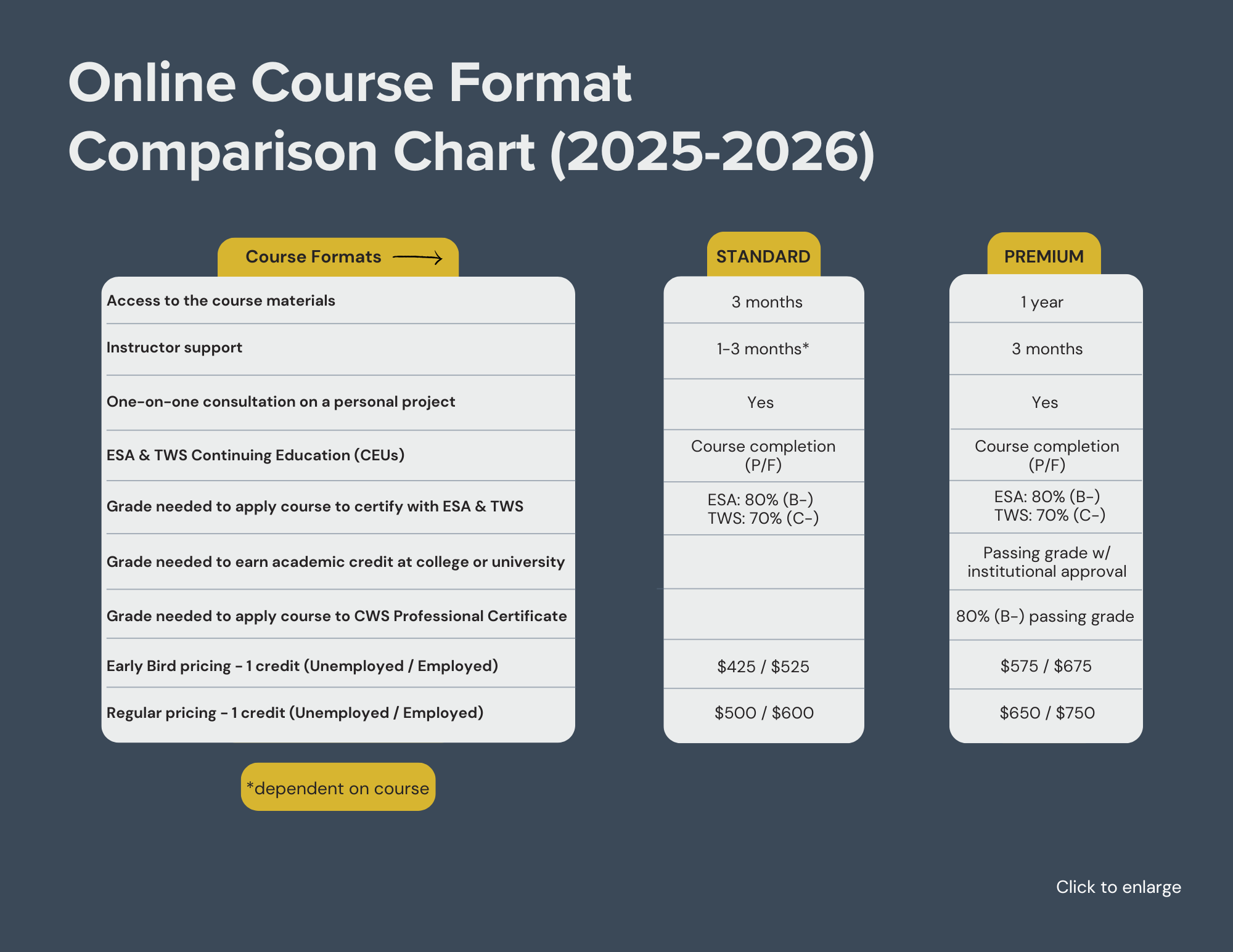-
This course focuses on understanding the role of a facilitator and learning basic facilitation skills that can help participants harness the collective wisdom of a conservation team. Participants will learn how to prepare for and facilitate effective meetings and workshops, both in-person and online. Specific topics will include: preparation for meetings and workshops, the facilitator’s role in guiding the flow of the conversation, use of icebreakers and energizers, key aspects of adult learning, navigating conflict and difficult participants, enhancing creativity, and helping teams be realistic about what they can accomplish. The course will include a combination of presentations, discussions, hands-on practice facilitating group exercises, and experience planning an agenda and selecting facilitation exercises to use to achieve specific objectives. The course is oriented toward conservation project teams but will be applicable more broadly.
-
Course materials available March 2 - May 24, 2026.
Learn at your own pace (watch prerecorded lectures and videos, read papers, and participate in discussions) with instructor support.
Live meetings (also recorded) each week Mondays and Thursdays, 12:00 - 2:00 pm ET, during March.
See TOPICS & LEARNING OUTCOMES below for details.
-
Module 1: Overview of Facilitation
Describe the basic ideas behind facilitation (e.g., wisdom of crowds, theory of adult learning)
Module 2: Pre-Planning for Facilitation
Describe the work necessary to ensure an effective meeting or workshop happens before the event
Describe the elements of developing an effective agenda, including setting objectives, selecting participants, deciding how to use the time and documenting decisions
Practice setting expectations by using ground rules for meetings
Describe the need to assess team readiness and develop a team charter before undertaking longer collaborative processes
Practice facilitating, guiding the flow of the conversation, managing the time and documenting the main decisions
Module 3: Facilitating a Group Through Diverging and Converging
Describe how exercises in diverging and converging can help a group make decisions
Facilitate exercises that involve asking questions, paraphrasing, summarizing and encouraging
Module 4: Adult Learning
Describe how to involve adult learners and take advantage of their experience
Facilitate exercises designed for adult learners (e.g., that take advantage of participants’ experiences and are relevant to their lives)
Module 5: Special Characteristics of Virtual Facilitation
Use dynamic exercises (icebreakers, energizers, polls, etc.) to address common challenges related to virtual facilitation
Module 6: Navigating Conflict and Difficult Participants (Pitfalls of Facilitation)
Use skills to address conflict and difficult participants
Develop a situation model
Facilitate exercises that involve asking questions, paraphrasing, summarizing and encouraging
Module 7: Enhancing Creativity
Describe what creativity is and how facilitation can enhance it
Facilitate the process of brainstorming and selecting conservation strategies
Module 8: Theory of Change: Defining & Documenting a Team’s Vision of the Future
Describe what theory of change is, its value, and how to help a team develop one
Facilitate the development of results chains (a tool for documenting a theory of change)
Module 9: Analyze and Adapt to Strengthen a Project
Describe importance of helping teams analyze their performance and make adjustments to increase their effectiveness
Facilitate “pause and reflect” (analyze and adapt) exercises
Modules 10-11: Bringing It All Together and Planning Your Agenda
Define the objectives and design the agenda and materials for a one-day workshop
Facilitate one of the exercises for a one-day workshop
COURSE OPTIONS & INFORMATION (Review chart above, then click below)
-
FORMAT:
3 months of access to course materials as you work at your own pace
Get instructor support via email, discussion threads, group meetings, and one-on-one appointments
After working through the course materials, set up an optional meeting with the instructor to discuss your own personal project from work or school
CONTINUING EDUCATION:
16 CEUs with The Wildlife Society
Go to our Continuing Education Page for more details
-
CONTINUING EDUCATION:
16 CEUs with The Wildlife Society (go to our Continuing Education Page for more details)
CERTIFICATIONS:
Earn 1 credit towards a professional certificate in Conservation Planning with CWS
ACADEMIC CREDIT:
Earn 1 academic credit (go to our Academic Credit Page for details)
Earn an additional 1-2 academic credits with an Applied Project
INSTRUCTOR
INSTRUCTOR
SCHOLARSHIPS
Full scholarships are available to participants from countries designated as “lower income” and “lower middle income” in the World Bank List of Economies. Please see our CWS World Scholars Program page for details.





